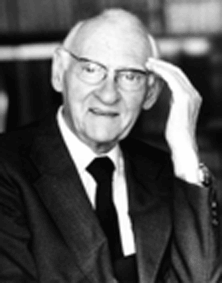Did Christ Suffer in Hell When He Descended into Hell?
Christ’ Victory of Hell
on Holy Saturday
There’s a dangerous doctrine gaining popularity in Catholic circles. It holds that Christ’s “descended into Hell,” not as a Victor announcing his victory over Satan, sin, and death (the orthodox Catholic doctrine), but rather that Christ descended as a sentenced man like the damned with His own sense of “despair” (the new false teaching).
The new theology holds that Christ continued to suffer after death and experienced solidarity with the damned.
Where are well-meaning Catholics getting this incorrect idea?
John Calvin. Huh? Yep, Catholics are getting stuff from Calvin, but in a round about way. Let’s take a look at the paper trail:
Years ago while listening to Hank Hanegraaff’s Bible Answer Man radio program, a caller called in about “Christ suffering in Hell.” Hank rightly explained that “Christ suffering in Hell” is not a biblical doctrine, but noted that the doctrine was held by John Calvin. Hank respectfully disagreed with Calvin.
I won’t bore you with the details of Calvin’s noodled theology, but I’ll leave you with the academic citation: see Calvin’s Institutes of the Christian Religion Book II, Chapter 16, 10. I’ll just give you one quote so you can get the feel of Calvin’s distorted thinking: “Christ endured before God, to teach us that not only was the body of Christ given up as the price of redemption, but that there was a greater and more excellent price – that he bore in his soul the tortures of condemned and ruined man.”
So much for Calvin…
Catholics always rejected this theory of “Christ suffering in Hell.” We believe that Christ descended into Hell not as a victim of suffering under the penal wrath of God in Hell. Catholic believe that Christ descended to proclaim His victory over Hell and to ransom the Old Testament saints from the Limbo of the Fathers. That is the teaching of ALL THE SAINTED CHURCH FATHERS, EAST AND WEST.
Regrettably, Hans Urs von Balthasar re-popularized the false position once held by John Calvin – that Christ entered Sheol/Hell . Again, I won’t bore you with the details. Just take a look at Alyssa Lyra Pitstick’s book Light in Darkness: Hans Urs von Balthasar and the Catholic Doctrine of Christ’s Descent into Hell. She has written the definitive book on the subject:
Balthasar wrongly taught that Our Lord Jesus was “crushed” in Hell, and that He suffered as an object of the Father’s wrath. Balthasar goes so far as to say that “God cursed (and so banished) in Him everything hostile to the Divinity.”
Where is Balthasar getting all this?
Father Hans Urs von Balthasar, SJ
Re-Popularizing of Christ Suffering in Hell
Balthasar based his theological speculations on the visions (private revelations) of his intimate friend Adrienne von Speyr. Adrienne Von Speyr was, drum roll please, a convert from Swiss Calvinism. Her theological formation was not Catholic, but Calvinist.
Moreover, Balthasar spent much of his theological career studying and celebrating the theology of Swiss Protestant theologian Karl Barth. Barth was, drum roll please, a minister and theologian of the Swiss Reformed Church – the descendant of Calvin’s theological denomination.
Adrienne von Speyr
The Visionary of Balthasar’s Theology
It’s no coincidence that the Balthasar’s “innovative” theology on Christ suffering in Hell comes form the cantons of Calvinist Switzerland.
Balthasar’s “innovative theology” is merely a rehashing of Swiss Calvinism. It is not Patristic. It is not Catholic. It’s Calvinism repackaged for Catholics.
What then is the historic and magisterial teaching of Christ’ descent into Hell?
This descent into Hell as Christ’s victory corresponds to the teaching of our first Pope Saint Peter: Christ “proclaimed the Gospel even to the dead” (εἰς τοῦτο γὰρ καὶ νεκροῖς εὐηγγελίσθη, 1 Pet 4:6). Jesus wasn’t burning in the flames! Jesus wasn’t in solitary sadness in the shadow of Sheol. Christ was dashing the gates of Hell, proclaiming His victory, and delivering the righteous of the Old Testament! That’s the holy Catholic and Apostolic Faith in all its beauty.
Calvin’s (and Balthasar’s rarefied) “penal substitution” theory of the atonement is patently false. Christ died for us, but it wasn’t a simple swap. Christ uses the language of participation. We are to be “in Him” and we are to also carry the cross. Christ doesn’t take up the cross so that we don’t have to take up the cross. He repeatedly calls us to carry the cross. Our lives are to become “cruciform.” The New Testament constantly calls us to suffer in the likeness of Christ. Again, it’s not a clean exchange. It’s not: “Jesus suffers so that we don’t have to.” Rather we participate in His redemption. This is also the language of Saint Paul:
“For it has been granted to you that for the sake of Christ you should not only believe in him but also suffer for his sake” (Phil 1:29).
“Now I rejoice in my sufferings for your sake, and in my flesh I complete what is lacking in Christ’s afflictions for the sake of his body, that is, the Church” (Col 1:24).
According to Catholic Christianity, Christian salvation involves the vindication of Christ’s unjust death on the cross. God does not “hate” or “crush” His Son. This is impossible. God does not “turn away” from His Son. Luther introduced this false tension and it has led to Calvin’s grievous heresy. Saint Paul speaks of “overcoming death” as the true victory of Christ – not His becoming the whipping-boy of the Father.
I truly hope that this post causing people to pause and take one step back from Balthasar. My opinion is that Balthasar is the Origen of our era: Brilliant. Interesting. Poetic. But Dangerously Wrong on so many important Catholic doctrines.
I should stop there and open up the comments: Have I depicted Balthasar rightly? If so, why do Catholics gush over his version of “Calvinism 2.0”?
If you want to learn more about how Catholic theology stresses the Pauline doctrine of “participation,” please check out this book, and consider listening to some of my FREE Catholic Paul Podcasts: click here.
What to Watch Next
Special Lent Course offer: https://nsti.com/checkout/?rid=pZxQpG Here’s the special link for the Lent Course and all bonuses for...
The scandalous details of the Epstein Files reveal the ancient strategy of double-layered religions: a dominant religion...
The Priestly Society of Saint Pius X (SSPX) announced on Feb 2 2026, that it plans to...
SHOP THE TAYLOR MARSHALL STORE
Dive Deeper

GET CONFIDENT IN YOUR FAITH
Explore the fascinating world of Catholic teachings with Dr. Marshall. Together you’ll unpack the brilliant answers the Church gives to tough questions about the Faith. The best part: you go at your own pace. Start this exciting journey today.


 >
>




